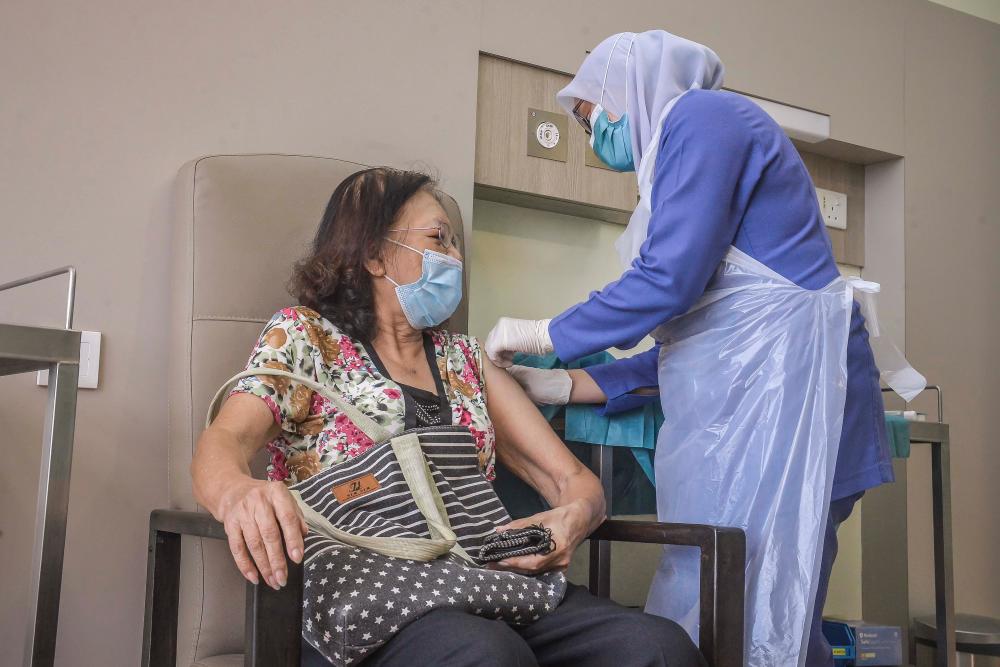PETALING JAYA: Almost two years on, the world continues to struggle to contain the Covid-19 pandemic.
Available data is still insufficient to determine whether a booster shot is necessary, much less how to deal with the continued emergence of new and potentially more infectious variants of the coronavirus.
According medical experts, the data is also insufficient to determine if a booster shot would be more effective in curbing the spread of the newly discovered Omicron variant.
Based on the experience of Israel, Singapore, some parts of Europe and the United States, scientists now believe three shots of vaccines are necessary to stay safe, but only for now.
“Beyond that, we will have to see what the incoming data tells us,” said epidemiology and biostatistics specialist Dr Malina Osman.
She added that for now, strict adherence to standard operating procedures (SOP) remains the best defence.
She was responding to a statement by Health Minister Khairy Jamaluddin that the government has yet to decide whether to require people to have a third shot of the vaccine to be acknowledged as being fully vaccinated.
Malina, who is an associate professor at the Faculty of Medicine and Health Sciences at Universiti Putra Malaysia, noted that there is evidence to show that the efficacy of the vaccine as well as antibodies in those who have received two doses wanes after a certain duration.
However, she said there is not enough data to determine if it is necessary to have additional doses on a regular basis, such as shots for seasonal flu (influenza).
She said more data is needed before the government can decide if it should make booster shots mandatory.
“What we know now is that we cannot afford another surge, like the one in June, July and August. The healthcare system almost collapsed, and the number of fatalities were in the hundreds.”
That aside, what is certain is that those who have not been vaccinated are vulnerable to repeat infections.
“This is reason enough for those who have been infected to get vaccinated once they have recovered,” she added.
Universiti Malaya professor of epidemiology and public health Dr Sanjay Rampal said the emergence of new strains alone does not appear to be an indication of the period of efficacy of some vaccines.
“We should also be clear about the purpose of vaccination. A national booster programme alone is not enough to prevent transmission,” he said.
“We must also determine if the booster doses are cost-effective and this can be done by evaluating various groups routinely and the data used as the basis in policy-making.”
Malaysian Medical Association president Dr Koh Kar Chai said the rate of hospitalisation, new cases and fatalities in the coming months would determine if a booster dose is necessary.
“Nonetheless, currently available evidence does show that a booster shot can raise the level of protection quite significantly,” he said, adding that scientists believe a three-dose regimen is sufficient for now.
“However, we do not know if that is enough to keep new variants at bay.”
Koh agreed with Malina’s assessment that more data is needed before it can be determined if a booster dose is necessary, taking into account the emergence of new variants.
He also agreed that humanity could someday develop a natural immunity against Covid-19, either through recovery from an infection or vaccination.
“However, it is also important to strengthen our immune system to ensure we are free of co-morbidities, which can weaken our defence against invading pathogens,”
he added.














